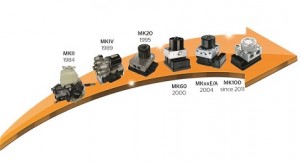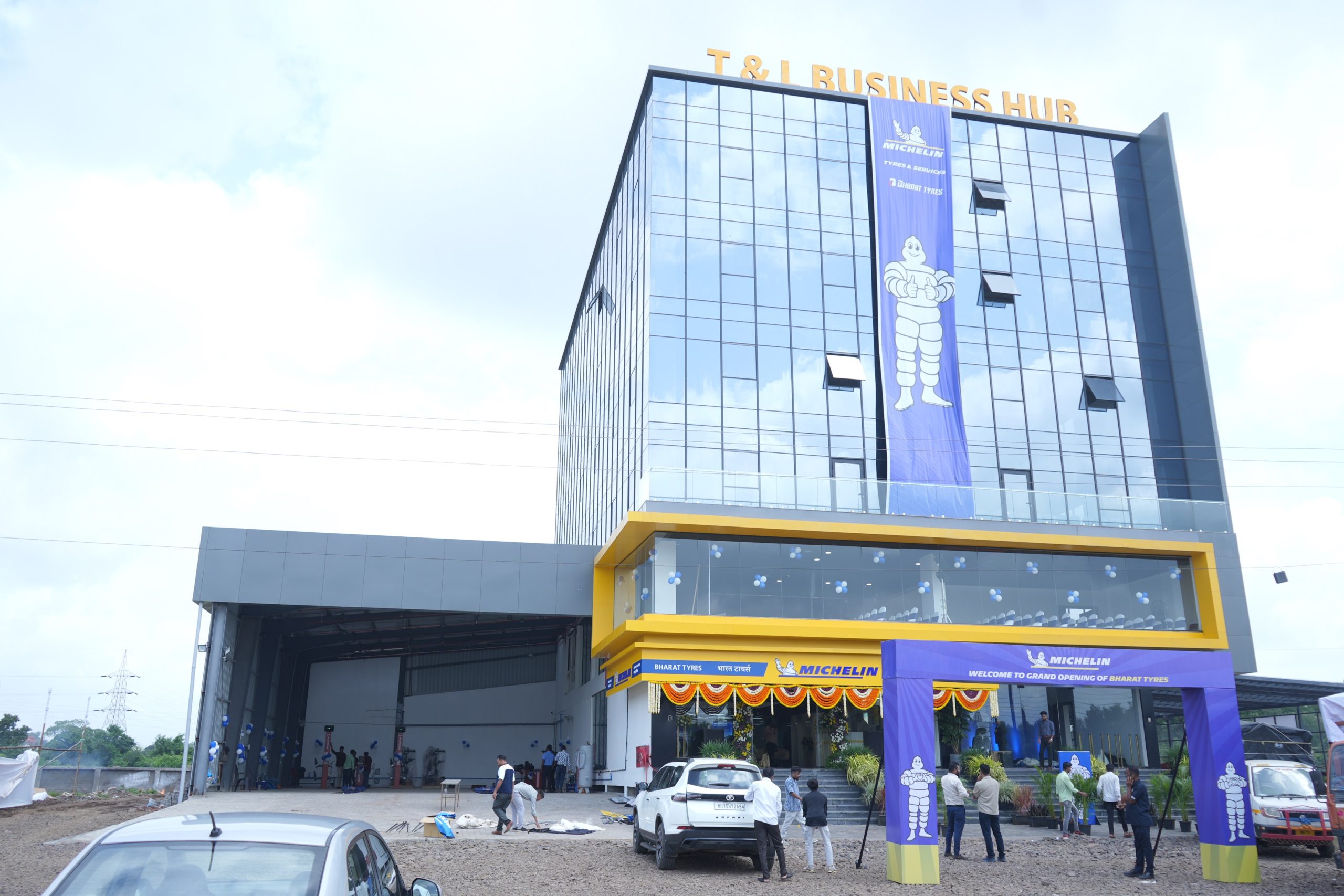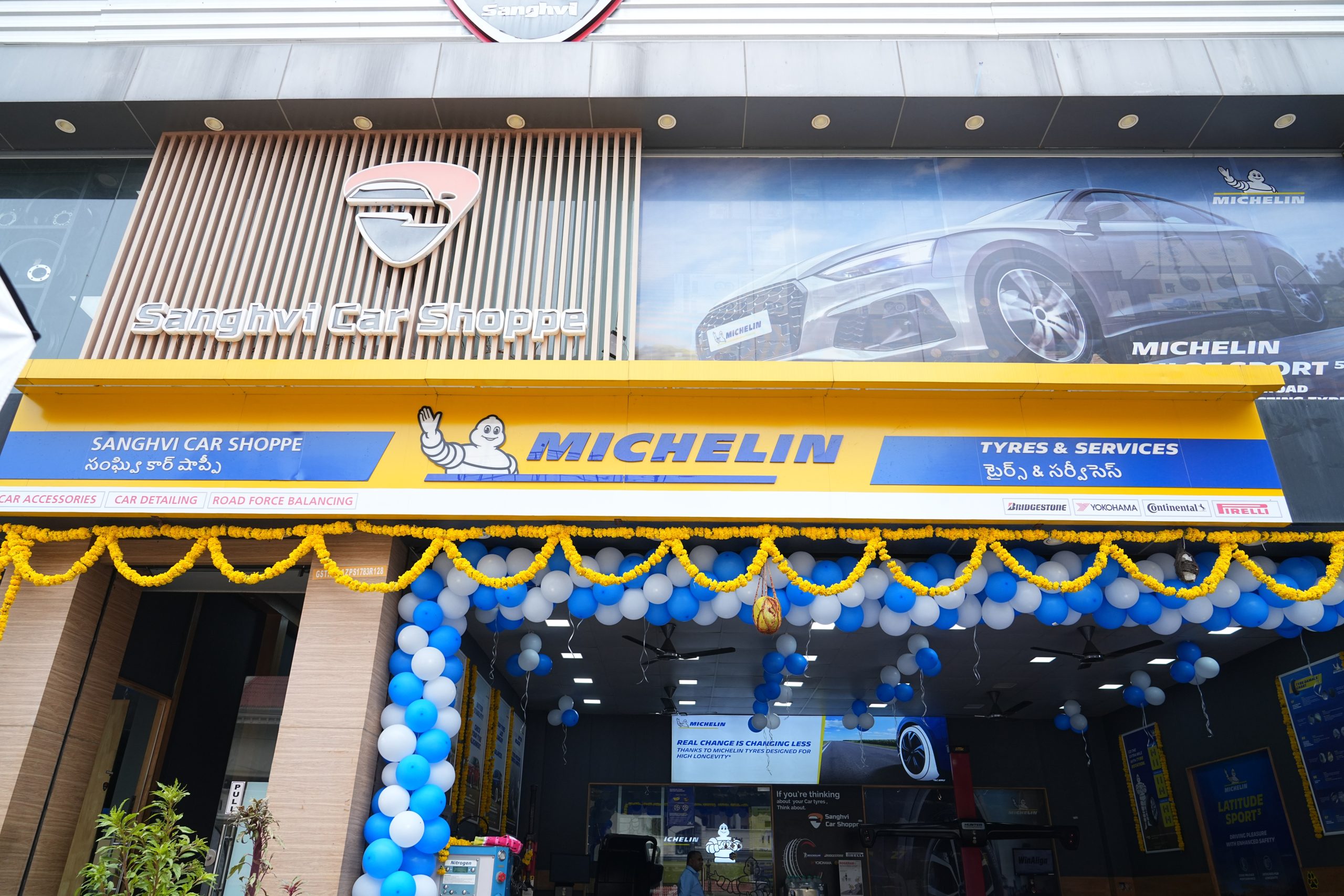International automotive supplier Continental has been producing Electronic Brake Systems (EBS) for 30 years now. Two other milestones will occur this year: the 100 millionth EBS unit will roll off the assembly line in Frankfurt, which will also be the 250 millionth unit manufactured worldwide. “Electronic brake systems have been enhancing safety since 1984. They stabilise cars by assuming braking functions. ABS and Electronic Stability Control are among the most important life-savers in road traffic“, says Felix Bietenbeck, head of the Vehicle Dynamics Business Unit of Continental’s Chassis & Safety Division.
 Production of electronic brake systems began in 1984 at the Rödelheim plant in Frankfurt when Continental’s first Anti-lock Brake System (ABS), the MKII, rolled off the assembly line. “The MKII was the first fully integrated ABS and became standard equipment on the Lincoln Continental and the Ford Scorpio. It was a real heavyweight, weighing in at 11.5 kilograms, but it effectively prevented one or more wheels from locking“, says Bietenbeck. The weight of EBS units has meanwhile steadily diminished from one generation to the next. The MK 20 that went into mass production in 1995 weighed a mere 2.7 kilograms. The two-kilogram MK 60, a pure ABS device, was the lightest electronic brake system in the world in 2000. The Electronic Stability Control (ESC) function added only 0.3 kilograms, making it the lightest ESC device in the world at the time. The current MK 100 electronic brake system has been in production since 2011. Its weight and dimensions have shrunk by approximately another third from the previous generation. “Continental’s MK 100 product family has been designed in modular fashion so that manufacturers can scale the systems according to their requirements, beginning with motorcycle ABS through entry-level ABS for small cars up to high-performance, high-end solutions for heavy vehicles“, says Bietenbeck.
Production of electronic brake systems began in 1984 at the Rödelheim plant in Frankfurt when Continental’s first Anti-lock Brake System (ABS), the MKII, rolled off the assembly line. “The MKII was the first fully integrated ABS and became standard equipment on the Lincoln Continental and the Ford Scorpio. It was a real heavyweight, weighing in at 11.5 kilograms, but it effectively prevented one or more wheels from locking“, says Bietenbeck. The weight of EBS units has meanwhile steadily diminished from one generation to the next. The MK 20 that went into mass production in 1995 weighed a mere 2.7 kilograms. The two-kilogram MK 60, a pure ABS device, was the lightest electronic brake system in the world in 2000. The Electronic Stability Control (ESC) function added only 0.3 kilograms, making it the lightest ESC device in the world at the time. The current MK 100 electronic brake system has been in production since 2011. Its weight and dimensions have shrunk by approximately another third from the previous generation. “Continental’s MK 100 product family has been designed in modular fashion so that manufacturers can scale the systems according to their requirements, beginning with motorcycle ABS through entry-level ABS for small cars up to high-performance, high-end solutions for heavy vehicles“, says Bietenbeck.
Whereas 1988 saw production of just under 500,000 electronic brake systems, the number had increased tenfold to more than five million units in 1998. Since 2002, more than ten million EBS have been manufactured yearly and – since 2013 – that number has risen to over 20 million units. As a result of this surge, Continental will be able to celebrate the production of its 250-millionth EBS unit this year. In addition to Frankfurt, electronic brake systems are manufactured in five other plants: Hamakita (Japan), Mechelen (Belgium), Morganton (USA), Shanghai (China) and Várzea Paulista (Brazil).
Accidents Prevention
In addition to the anti-lock brake system, the electronic stability control helps prevent skidding at an early stage so as to keep cars on the road. As a result, the risk of side impacts with trees can also be reduced, which cause nearly one in five fatal traffic accidents according to insurance-industry research. Studies by the Allianz insurance technical center have shown that if every vehicle on the road were equipped with ESC, one in four accidents resulting in personal injury and up to 40 percent of all fatal traffic accidents could be avoided. Electronic brake systems also harbor great potential for preventing motorcycle accidents. If every motorcycle were equipped with ABS, ten percent of accidents involving personal injury could be prevented.
Legislators in Europe, the USA and parts of Asia have meanwhile recognised the potential for avoiding accidents and have mandated ESC. Any car and truck in Europe that has been designed since November 2011 must have ESC on board. Starting in November 2014, ESC will be mandatory for any vehicles being registered for the first time in Europe. Regulations in Japan exhibit similar characteristics. ESC has been required on all vehicles in the USA up to 4.5 tons since September 2011 – in South Korea, since January 2012. According to official statistics, 70 percent of vehicles on the road in Germany and 87 percent of newly purchased cars had ESC in 2013. The European Union (EU) also intends to reduce the number of serious motorcycle accidents by making ABS mandatory. The anti-lock brake system will be required on all motorcycles over 125 cubic centimeters. Starting in 2016, ABS will be obligatory on all newly designed models and, starting in 2017, for any motorcycle in Europe.










Leave a Reply